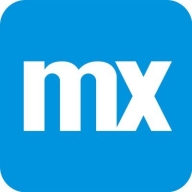

Mendix and Ionic offer solutions in the app development space. Mendix appears to have the upper hand in business-oriented solutions due to its rapid prototyping and integration capabilities, while Ionic is advantageous for teams skilled in web technologies thanks to its open-source hybrid development model.
Features: Mendix is known for its rapid development process, supporting small teams to deliver quickly using visual programming and integrated deployment environments. Its agile collaboration tools and enterprise-ready systems are beneficial for business applications. Ionic provides single-codebase solutions for multiple platforms, making it cost-effective. Its open-source nature and ease of use in hybrid app development are advantageous for teams familiar with web-based languages.
Room for Improvement: Mendix could enhance its reporting features and multi-database support, while improving UI/UX design. On another hand, Ionic might work on boosting its native performance and augmented reality support, along with smoother version transitions.
Ease of Deployment and Customer Service: Mendix offers flexible deployment, including on-premises and cloud options, with positive but occasionally delayed customer support. Ionic supports multiple deployment environments and has an active user forum for addressing queries. Its improved documentation helps with deployment, though version migrations may still present challenges.
Pricing and ROI: Mendix’s higher upfront cost can lead to substantial ROI by reducing development cycles and needing fewer developers, making it ideal for large enterprises. Its pricing is negotiable, potentially unsuitable for small businesses. Ionic's open-source framework offers a low-cost entry to hybrid app development with a free version and optional premium features, appealing to a broader audience.
| Product | Market Share (%) |
|---|---|
| Mendix | 10.4% |
| Ionic | 5.5% |
| Other | 84.1% |


| Company Size | Count |
|---|---|
| Small Business | 7 |
| Midsize Enterprise | 2 |
| Large Enterprise | 6 |
| Company Size | Count |
|---|---|
| Small Business | 28 |
| Midsize Enterprise | 7 |
| Large Enterprise | 25 |
Ionic is an open-source UI toolkit for developing high-quality mobile and desktop apps with web technologies such as HTML, CSS, and JavaScript. Ionic focuses on the frontend UX and UI interaction of an app – UI controls, interactions, gestures, and animations. It is simple to learn and can be used without any frontend framework by utilizing a simple script inclusion.
While previous versions of Ionic were strongly connected to Angular, version 4.x of the framework was re-engineered to serve as an independent Web Component library, with integrations for the newest JavaScript frameworks, such as Angular. Ionic works well in most frontend frameworks, including React and Vue, however some frontend frameworks require a shim to enable full Web Component support.
The official Ionic CLI, or Command Line Interface, is a tool that enables developers to easily construct Ionic apps and offers a number of useful commands. The CLI installs and updates Ionic and also includes a built-in development server, build and debugging tools, and much more. If you are an Appflow member, you may manage your account and carry out cloud builds and deployments via the CLI.
Ionic Features
Ionic has many valuable key features. Some of the most useful ones include:
Ionic Benefits
There are many benefits to implementing Ionic. Some of the biggest advantages the solution offers include:
Mendix is a low-code application development platform that helps your organization accelerate its application development lifecycle. The solution is designed to enable you to create software faster by abstracting and automating the development process for better business outcomes at speed and scale. Mendix has many key capabilities, including a tailored IDE for every developer, built-in collaboration tools for team development, feedback management, agile project management, the ability to build a truly responsive design across devices, and much more.
Mendix Features
Mendix has many valuable key features. Some of the most useful ones include:
Mendix Benefits
There are many benefits to implementing Mendix. Some of the biggest advantages the solution offers include:
Reviews from Real Users
Below are some reviews and helpful feedback written by PeerSpot users currently using the Mendix solution.
PeerSpot user Somnath G., Solution Architect and LowCode Practice Lead at a tech services company, says, "What I found most valuable in Mendix is that it's very much suitable for mobile apps such as native Android or IOS supported mobile apps. The multiple features of the platform are very, very attractive and very popular. Mendix has technical features such as microflows and nanoflows. You can also access data models in the platform. These are the features that are very, very strong in Mendix. I got my hands dirty on other low-code platforms, but I have not seen such strong features in them compared to the microflows, nanoflows, and data model access that are in Mendix, including creating and integration. The platform has out-of-the-box adapters or out-of-the-box-connectors that you can integrate with different interface applications such as SAP, Salesforce, Oracle EBS, etc."
Sameer V., Consulting Manager at Deloitte, mentions, “Their native mobile capability is very good. In general, the way they launch the product has been great. Their product launching strategy is far better than any other platform. I work in OutSystems and Mendix. They tend to be more on the legacy side, OutSystems. With this solution, the product launching strategy is very, very agile. I really like when they roll out their updates, which are very, very frequent.”
Robert B., Solutions Architect at a computer software company, explains, The solution is just very quick and responsive. The initial setup is very straightforward, and those implementing the product do not have to be very technologically advanced in order to manage the process.”
We monitor all Mobile Development Platforms reviews to prevent fraudulent reviews and keep review quality high. We do not post reviews by company employees or direct competitors. We validate each review for authenticity via cross-reference with LinkedIn, and personal follow-up with the reviewer when necessary.